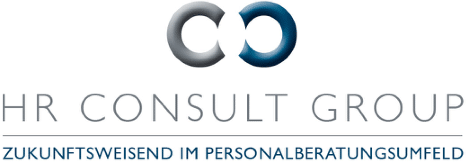Headhunters in the automotive trade: the key to success?
In an industry that is constantly changing and where innovation is the order of the day, headhunters play a crucial role in the automotive trade. The automotive sector has undergone an unprecedented transformation in recent years. New technologies, changing consumer preferences, and the increasing importance of sustainability have changed the rules of the game. In this dynamic environment, it is essential for companies in the automotive trade to find and retain the best talent in order to remain competitive. This is where headhunters come in.
The role of the headhunter in the automotive trade
Headhunters in the automotive industry are more than just recruiters; they are strategic partners who help companies fill key positions with the right talent. In a market where experience and expertise can make a significant difference, it is crucial to attract not only qualified but also innovative and visionary employees.
The role of a headhunter in the automotive industry is to delve deep into the talent pool and identify candidates who not only have the necessary skills, but also fit in with the culture and long-term goals of a company. This requires a comprehensive understanding of the industry, as well as a strong network and the ability to adapt quickly to the changing needs of the market.
Challenges and opportunities in the automotive trade
One of the biggest challenges in the automotive trade is digitalization. With the advent of online sales platforms and digital showrooms, traditional car dealers need to adapt their business models. To do so, they need experts who are at home in both the digital world and traditional automotive trade. A headhunter in the automotive trade must be able to identify such multidisciplinary talents who are capable of driving digital change.
Another critical issue is sustainability. With the increasing focus on environmentally friendly vehicles and reducing carbon footprints, automotive dealers are looking for experts who have experience with electric vehicles, hybrid technologies, and sustainable business practices. An experienced headhunter in the automotive industry understands the importance of these trends and can find candidates who are both visionary and experienced in these areas.
Innovation and competitiveness
In a rapidly evolving industry such as automotive retail, innovation is the key to success. Companies must always have their finger on the pulse in order to not only understand the latest trends and technologies, but also to use them effectively. A headhunter in the automotive trade plays a crucial role in identifying executives and specialists who are capable of developing and implementing innovative solutions. It is these talents that keep a company at the forefront of the competition.
Customer relations and networking
Another important aspect of the automotive trade is customer relationship management. In an environment where the customer is king and customer expectations are constantly rising, it is crucial to have employees who can build and maintain excellent customer relationships. A headhunter in the automotive trade understands how important these skills are and specifically seeks out candidates who are able to create long-term customer loyalty and drive business forward.
Adaptability and flexibility
The automotive trade is subject to constant change. It is therefore important to have employees who can adapt and respond flexibly to change. Headhunters in the automotive trade specialize in identifying such talent, who not only have technical skills but also the ability to adapt to new challenges.
Future prospects: Electric mobility and autonomous driving
The future of the automotive trade will increasingly be shaped by topics such as electromobility and autonomous driving. Companies that want to be leaders in these areas need experts who have both technical know-how and a deep understanding of these new technologies. A headhunter in the automotive trade is therefore indispensable for finding specialists who can not only master the current challenges, but also actively shape the future of the automotive trade.
Outlook: The changing role of the headhunter
In conclusion, it can be said that the role of headhunters in the automotive trade is constantly evolving. In a market influenced by both traditional and new, disruptive forces, headhunters in the automotive trade must not only understand current trends, but also be able to anticipate future developments. The ability to quickly and efficiently identify and attract the best talent will be crucial to the success of companies in the automotive trade.
In an industry on the cusp of a new era, headhunters in the automotive trade are becoming key players who not only meet current needs but also set the course for the future. It is a dynamic and exciting time for everyone involved, and the role of headhunters in the automotive trade is becoming increasingly important.
This concludes our comprehensive overview of the role of headhunters in the automotive trade. In an industry that is constantly evolving, the importance of these professionals cannot be underestimated. They are the bridge between current requirements and future challenges, between traditional methods and innovative approaches. Headhunters in the automotive trade are therefore not only talent brokers, but also architects of change.
Are you looking for executives in the automotive trade? You can find the right contacts here:


